The British authorities are facing fresh pressures for the return of looted artefacts by British soldiers in 1897 from the Benin Kingdom to Nigeria. Leaked documents discovered in Foreign Office archives exposed rape scandal of British Consul during the colonial regime after the invasion of the Benin Kingdom which Lord Salisbury covered up to hide the moral burden on the United Kingdom (UK) from the rest of the world. Beside looting thousands of artefacts from the royal throne, British armies committed several other inhuman atrocities against the indigenous people, particularly, women and children in the Benin Kingdom during their heinous expedition.
The emerging exposure of immoral and unethical acts of the British colonial soldiers is generating fresh pressures on the UK to return all artefacts looted from the Benin Kingdom during the colonial regime.
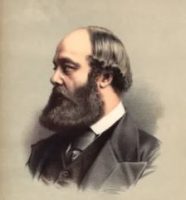
Lord Salisbury
A historian discovered at the Foreign Office unpublished documents that reveal how Lord Salisbury refused to take appropriate action after reading internal reports of abuse and violence by Consul George Annesley, son of a Foreign Office official. The unpublished document reveals that Consul George Annesley ordered that an indigenous woman, called Ekang, be brought to his quarters. The local woman, Ekang, was assaulted by Annesley’s soldiers. The Consul personally held Lady Ekang down and she was wildly raped. Annesley further ordered raids, leading to mass shootings of women and children in the kingdom.
The Prime Minister, Lord Salisbury, merely acknowledged in a note on the report of Annesley’s atrocities – “very bad indeed”. He did nothing to ensure justice or restore discipline in the colonial army. Annesley was rewarded by the prime minister for his crime against humanity, who approved his retirement with pension benefits, shielding the rapist Consul from any public scandal.
A historian, Paddy Docherty, discovered the documents in the Foreign Office archives. He stated that the documents present “irrefutable evidence that prime minister Lord Salisbury oversaw the cover-up of the atrocious crimes of Annesley”. Docherty expressed consternation that the “documents have gone unnoticed until now.”
The historian of empire, specializing on the British Empire, was of the view that “the revelations,” of the discovered documents, “demolish any moral argument for Britain retaining some of Africa’s greatest art.”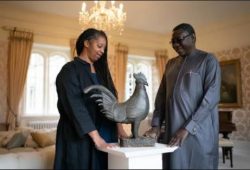
History reveals that British troops had taken vengeance after local soldiers of the Benin Kingdom ambushed and killed British military officers and others in 1897. British troops, in their vengeance, forced the King into exile, plundered the treasures of the royal palace which had been scattered across the world.
Docherty revealed that “evidence in the Foreign Office archives proves that the invasion” of the Benin Kingdom “was planned for years” even though the British often say the Benin Punitive Expedition was “justified”.
Major Sir Claude MacDonald, taking over the administration of the Niger Delta, petitioned the British Prime Minister Lord Salisbury on the gross misconduct of Annesley.
According to the documents: “Major Sir Claude MacDonald, who took charge of the British administration of the Niger Delta in 1891, objected to Annesley’s conduct and had a fellow officer take sworn statements, including Ekang’s.
“In an internal letter, MacDonald concluded: “Consul Annesley seems to have acted in a most unjust, harsh & unwarrantable manner.”
The prime minister merely recommended the retirement of Annesley, but there was no punishment.
The documents revealed: “Previously unseen documents include a note initialed by Lord Salisbury from his private secretary: “It will be a good thing if Annesley retires. There are some very nasty stories about his proceedings.”
The historian, Docherty, decried that “nowhere in the papers does anyone suggest that Annesley should be prosecuted. It was covered up. That’s why nobody has written about it until now.”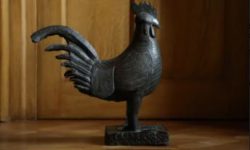
Dan Hicks, author of The British Museum: The Benin Bronzes, Colonial Violence and Cultural Restitution, a curator at the Pitt Rivers Museum, Oxford, where about 150 Benin artefacts are stored, on the documents revelations, had declared: “Increasingly, we’re learning about the sheer brutality of the Europeans in Africa in these periods. This detail that’s been highlighted in the archive is obviously shocking.”
AdvertisementThe British Museum was also cited to have stated: “The devastation and plunder wreaked upon Benin City during the British military expedition in 1897 is fully acknowledged by the Museum and the circumstances around the acquisition of Benin objects explained in gallery panels and on the museum’s website.”
Over 900 bronzes created from the 16th century onwards were discovered to be hidden in the British Museum alone.
The Cambridge University is the first UK institution to officially return the Benin artefact, a cockerel, to Nigeria.
More pressures from within have been on the British authorities to return the looted artefacts from the Benin Kingdom by British soldiers in 1897.
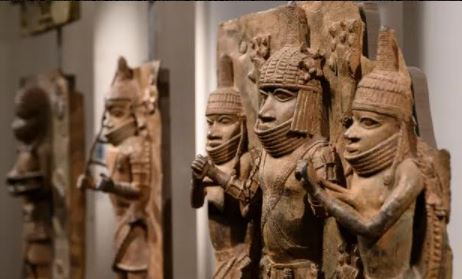

 Business7 days ago
Business7 days ago
 Inspirational7 days ago
Inspirational7 days ago
 Politics7 days ago
Politics7 days ago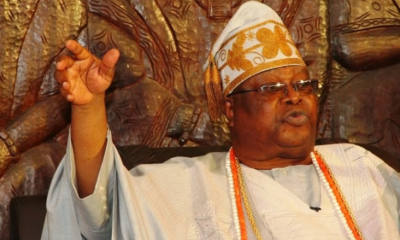
 Featured7 days ago
Featured7 days ago
 Business7 days ago
Business7 days ago
 Business1 week ago
Business1 week ago
 Latest6 days ago
Latest6 days ago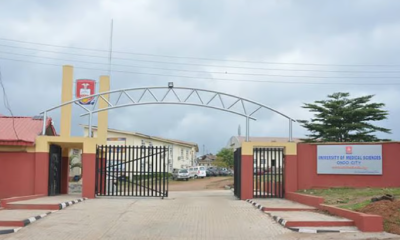
 Education7 days ago
Education7 days ago






